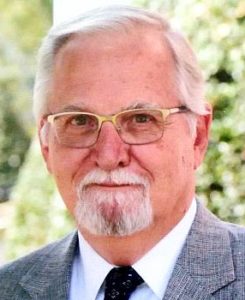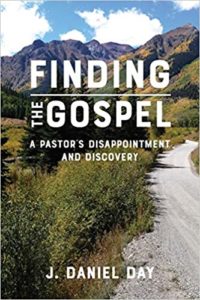September 11, 2001. Although post-graduate theological diplomas decorated my book-stuffed office and 40 years of pastoral ministry were under my belt, I was speechless that Tuesday morning when hijacked airplanes demolished more than national icons.
What was I to say in reply? The need was for a word hewn from the clash and fury of empires, a strong, prophetic word of judgment and of hope fashioned on the anvil of the politics and Providence of centuries. John 3:16, for all its timelessness, seemed quaintly inapplicable for that hour. And another safe sashay through the Plan of Salvation just would not do for the Sundays that followed 9-11. Deep down, my conscience said: “Your gospel is too small.”

Dan Day
November 9, 2016. The headline news of Donald Trump’s election as president of the United States came with as much “It can’t happen here” voltage as the 9-11 videos of crumbling Manhattan towers. For I had seen and heard Trump’s slander of Mexicans, his mocking of a disabled person, his accusations against the press, his cavalier defense of admitted sexual assaults, his denial of any need of forgiveness, his bullying debate tactics, his unconcern for truth, his display of profanity and fear-mongering. So I was sure that such a man could not be elected as president. But he was! Then came the post-election revelation that among his greatest supporters were people who’d been on Protestant pews for decades. Again, deep down, I heard: “Your gospel is too small.”
Baptists have historically seen themselves as ardent evangelists, as people of God’s good news of salvation through Jesus Christ. And they have seen themselves as champions of the separation of church from state. However, 9-11 and 11-9 revealed that the salvation we preached was understood mostly as a ticket out of hell, and the separation we championed was heard as encouragement to sever our privatized, spiritual faith from public policy.
Thus, two red-letter historical events exposed our gospel as essentially a message of self-interest (“eternal life”) activated and assured forever by a simple “sinner’s prayer,” through the death of a Savior who had little interest in anything this side of the pearly gates, especially not with things as sordid as politics or as thorny as justice.
Lost from sight was God’s passionate concern for “the world” — not just the world of religion, but the world of water, mountains and fossil fuel, the world of families and work and pain and county jails and violins and wiggly critters, of bean sprouts and laughter and viruses and sunsets and silent cemeteries. Lost from sight was the first 70% of our Bible reporting the rise and fall of nations — a political primer complete with dissidents, sycophants and raging prophets. Lost from sight was the grand narrative of a majestic God marching through history reconciling and recreating the whole groaning mess into a glistening new creation.
In 1956, J.B. Phillips made quite a stir with his little book Your God is Too Small. It is time to add that our gospel has also been too small.
“Jesus’ good news wasn’t small. It did not confine itself solely to personal salvation; it centered upon the kingdom of God.”
Jesus’ good news wasn’t small. It did not confine itself solely to personal salvation; it centered upon the kingdom of God — with this created world (you and I included), all healed and glistening like a new creation. Jesus’ gospel says that as important as heaven is, it’s just as important that God’s will be done here “on earth as in heaven.” As we seek this kingdom and its justice, he promised all else needed would be given.
Who knows? It just may turn out that what we need most is to be “saved” from our all-consuming self-concern by losing ourselves in caring about what God cares about. If so, the good news is that God really is at work in this world — yucky and gorgeous as it is — and we — inept and silly as we are — are being called by a forgiving, empowering God to be co-laborers in God’s “making all things new.”
And that’s a gospel big enough for whatever comes before Jesus does.
 Adapted from the new book Finding the Gospel: A Pastor’s Disappointment and Discovery by Dan Day, pastor emeritus of First Baptist Church, Raleigh, N.C., and former professor of preaching and worship at Campbell University Divinity School.
Adapted from the new book Finding the Gospel: A Pastor’s Disappointment and Discovery by Dan Day, pastor emeritus of First Baptist Church, Raleigh, N.C., and former professor of preaching and worship at Campbell University Divinity School.


